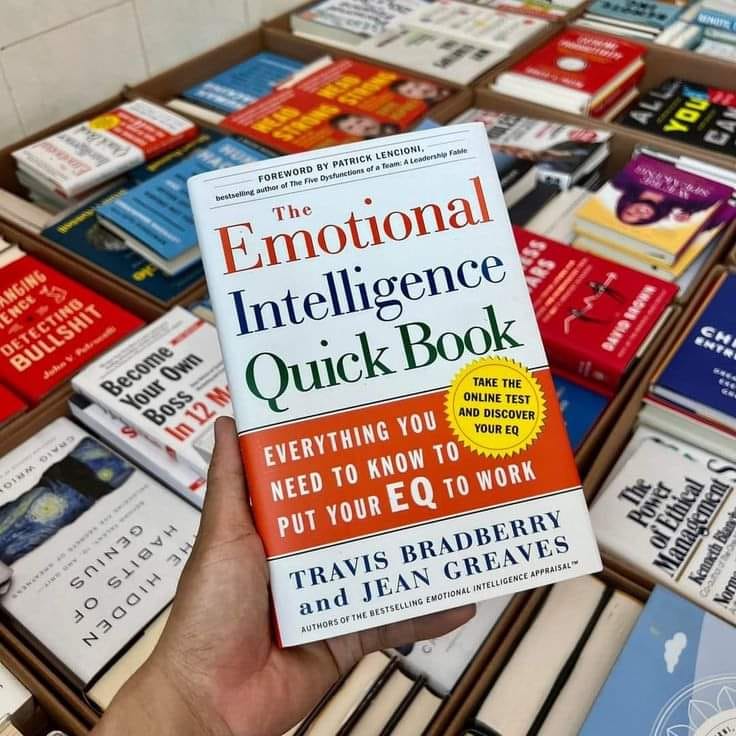The Emotional Intelligence Quick Book: A Summary
Introduction
“The Emotional Intelligence Quick Book,” authored by Travis Bradberry and Jean Greaves, is a concise guide to understanding and applying emotional intelligence (EI) in everyday life. EI, the ability to recognize, understand, and manage our own emotions while also recognizing and influencing the emotions of others, has become increasingly recognized as a critical factor for success in both personal and professional realms.
Key Concepts
- Understanding Emotional Intelligence The book breaks down EI into four main components:
- Self-Awareness: Recognizing and understanding your own emotions, strengths, and weaknesses.
- Self-Management: The ability to control your emotions and impulses, staying adaptable and resilient.
- Social Awareness: Understanding the emotions of others and empathizing with their perspectives.
- Relationship Management: The skills required to manage interactions and build strong relationships.
- Importance of EI Bradberry and Greaves emphasize that emotional intelligence is often more important than IQ in determining success. High EI contributes to better leadership, teamwork, and conflict resolution, enhancing both personal satisfaction and professional performance.
- Assessing Your EI The book includes a self-assessment tool that helps readers evaluate their emotional intelligence. This introspective exercise encourages individuals to identify areas of strength and opportunities for growth.
- Developing Emotional Intelligence The authors provide practical strategies for enhancing each component of EI:
- For Self-Awareness: Practice mindfulness and reflective journaling to better understand your emotions.
- For Self-Management: Develop coping strategies for stress and practice positive self-talk.
- For Social Awareness: Improve listening skills and engage in active empathy to better connect with others.
- For Relationship Management: Focus on effective communication and conflict resolution techniques to strengthen interpersonal bonds.
- Application in Daily Life The book emphasizes real-world applications of emotional intelligence in various settings, including workplaces, relationships, and personal development. By integrating EI skills into daily interactions, individuals can foster more productive and harmonious environments.
Conclusion
“The Emotional Intelligence Quick Book” serves as a valuable resource for anyone looking to improve their emotional intelligence. Bradberry and Greaves provide clear insights, practical tools, and actionable strategies that empower readers to enhance their EI, leading to greater success and fulfillment in both personal and professional spheres. By prioritizing emotional intelligence, we can cultivate stronger relationships, make better decisions, and navigate life’s challenges with resilience.
